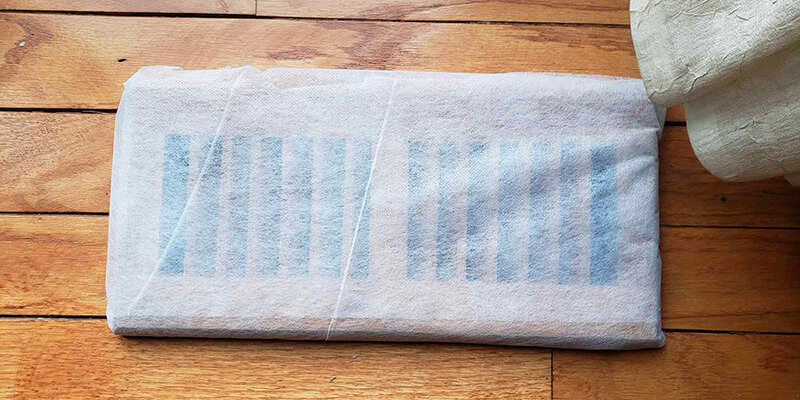Air duct filters are integral to maintaining the air quality in your home. They act as the first line of defense against airborne contaminants, capturing dust, pollen, and other allergens that can compromise your health and comfort. By understanding the importance of air duct filters, homeowners can take proactive steps to ensure their indoor air remains clean and healthy, which is particularly crucial for those suffering from allergies or respiratory issues. This guide will explore the various types of air duct filters, their benefits, and maintenance practices to help you choose and manage the best air filter for your home.
Enhancing Indoor Air Quality
Air duct filters significantly improve indoor air quality by trapping harmful particles. For individuals with allergies or asthma, these filters are indispensable as they minimize the presence of irritants that trigger symptoms.
Protecting HVAC System
Beyond air quality, air duct filters protect your HVAC system from dust and debris. A clean filter ensures efficient operation, reducing wear and tear and preventing costly repairs and replacements.
Energy Efficiency
A clean air duct filter enhances the efficiency of your HVAC system. With unimpeded airflow, your system consumes less energy, leading to lower utility bills and a smaller carbon footprint.
Types of Air Duct Filters
Fiberglass Filters
These are the most common and economical options available. Fiberglass filters are disposable and designed to block large particles like lint, dust, and debris.
Pleated Media Filters
Offering more surface area to capture particles, pleated media filters are more effective than their fiberglass counterparts. They can trap smaller particles, including mold spores and pet dander.
Electrostatic Filters
These filters use static electricity to attract particles. Electrostatic filters are available in both disposable and permanent options, the latter of which can be washed and reused.
Activated Carbon Filters
For homes needing odor control, activated carbon filters are ideal. They not only trap particles but also neutralize odors, providing a fresher indoor environment.
HEPA Filters
High-Efficiency Particulate Air (HEPA) filters are the benchmark in filtration, capable of trapping 99.97% of particles that are 0.3 microns in diameter. They are particularly recommended for households with severe allergies or asthma.
Selecting the Right Air Duct Filter
Assess Your Needs
Consider the specific needs of your household. If allergies or asthma are a concern, opt for HEPA or at least pleated media filters.
Understand Ratings
Filters are rated by the Minimum Efficiency Reporting Value (MERV), which indicates their ability to capture larger particles. The higher the MERV rating, the finer the particles it can filter out.
Consider the Size and Fit
Ensure the filter fits perfectly in your HVAC system. An ill-fitting filter can allow air to pass unfiltered, defeating the purpose of having one.
Maintenance of Air Duct Filters
Regular Checks
Inspect your air duct filters at least once a month, especially during high-use seasons, to ensure they are not clogged with debris.
Proper Replacement Schedule
Change your filters as recommended by the manufacturer, typically every 90 days. If you have pets, you might need to do it more frequently.
Professional Maintenance
Consider professional maintenance once a year. Technicians can check if the filters are appropriately installed and functioning at optimal levels.
Impact of Neglected Air Duct Filters
Neglecting air duct filter maintenance can lead to:
- Reduced HVAC efficiency, increasing operation costs.
- Poor air quality, exacerbating allergy and asthma symptoms.
- Potential HVAC system failures due to overheating or freezing.
Expert Tips for Maximizing Filter Efficiency
- Upgrade to a higher MERV rating for better allergen control.
- Consider smart filters that alert you when they need changing.
- Seal leaks in HVAC ductwork to ensure all air passes through the filter.
Conclusion
Maintaining clean air in your home starts with choosing the right air duct filter and maintaining it properly. At Reliable Air Duct Cleaning Houston, we are committed to helping you maintain optimal air quality with our comprehensive duct cleaning and filter maintenance services. Contact us to understand how we can assist you in creating a healthier home environment.
FAQs About Air Duct Filters
1. What are the health benefits of changing air duct filters regularly?
Regularly changing air duct filters helps reduce pollutants like dust, pollen, and other allergens in your home, significantly improving respiratory health and reducing allergy and asthma triggers.
2. How can I tell when my air duct filter needs changing?
Signs your air duct filter needs changing include visible dirt buildup, reduced airflow, and an increase in dust around your home. It’s also wise to adhere to the recommended change intervals.
3. Do more expensive air duct filters offer better protection?
Generally, more expensive air duct filters, such as HEPA or higher MERV-rated filters, offer better protection by trapping smaller particles, beneficial for those with severe allergies or asthma.
4. Can the right air duct filter reduce energy costs?
Yes, using the appropriate air duct filter can improve the efficiency of your HVAC system, reducing energy costs. A clean filter allows for smoother airflow and less strain on the system.
5. What is the difference between fiberglass and pleated filters?
Fiberglass filters are basic, capturing large particles, while pleated filters have more folds and surface area, capturing smaller particles more effectively.
6. Is it necessary to have my air ducts cleaned if I change filters regularly?
Even with regular filter changes, duct cleaning is recommended to remove any buildup that the filters do not catch, ensuring your HVAC system operates efficiently.
7. How do different environments affect the frequency of filter changes?
Homes in high-pollutant areas or with pets may require more frequent filter changes due to quicker accumulation of debris and allergens.


